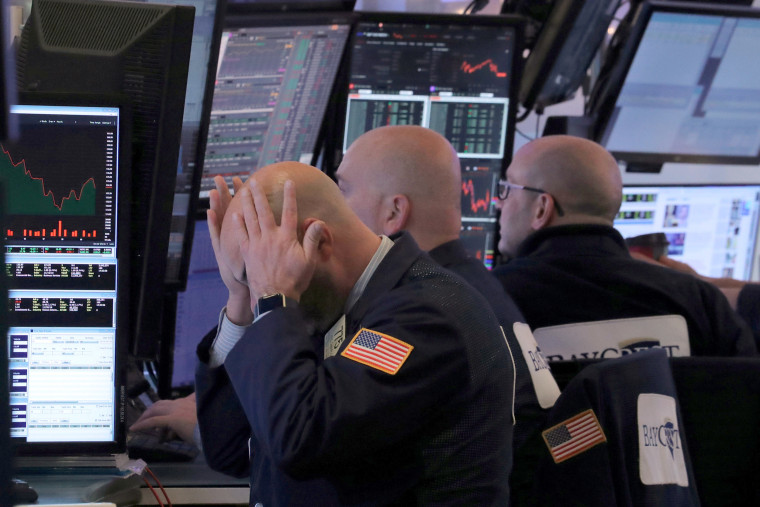The stock market took a nosedive on Thursday, as fears of a looming government shutdown melded with Wednesday’s market discontent over the Federal Reserve’s decision to continue to raise rates in 2019.
The market convulsion saw the Dow Jones Industrial Average fall by as much as 650 points at one point during midafternoon trading, with the S&P 500 down 2.4 percent and the Nasdaq dipping into bear market territory after a decline of 2.6 percent. Markets settled later in the afternoon, with the Dow hovering just above 300 points down.
The skittishness started on Wednesday after the Fed approved its fourth rate hike of the year, raising its benchmark borrowing rate to a range of 2.25 percent to 2.5 percent. An immediate sell-off followed the announcement, with the Dow falling by more than 500 points during Fed Chairman Jerome Powell’s press conference.
On Thursday, Treasury Secretary Steven Mnuchin categorized that market response as “completely overblown.”
“I think clearly you have a situation here where the market has overreacted to the Fed’s comments, and you see programmed trading taking over,” he said in an interview with Fox Business Network.
Nonetheless, investors continue to feel the bracing headwinds of a global economic slowdown, the impact of trade tariffs, and ongoing geopolitical tensions.
Adding to those concerns Thursday was the lingering possibility of a government shutdown. Some economists and traders have singled out a government shutdown as the biggest risk to the economy in 2019. With markets already shaky, any ongoing political dysfunction could lead to a dip in investor confidence, and hobble the economy’s chances for continued growth.
“If the government appears incapable of handling a situation, then I think it does shake people’s confidence," said David Wessel, director of the Hutchins Center on Fiscal and Monetary Policy and senior fellow of economic studies at the Brookings Institution.
“Government agencies in President Donald Trump's administration are already pretty dysfunctional,” said Mark Zandi, chief economist at Moody’s Analytics. “And if you have a government shutdown, that’s just going to exacerbate those.”

